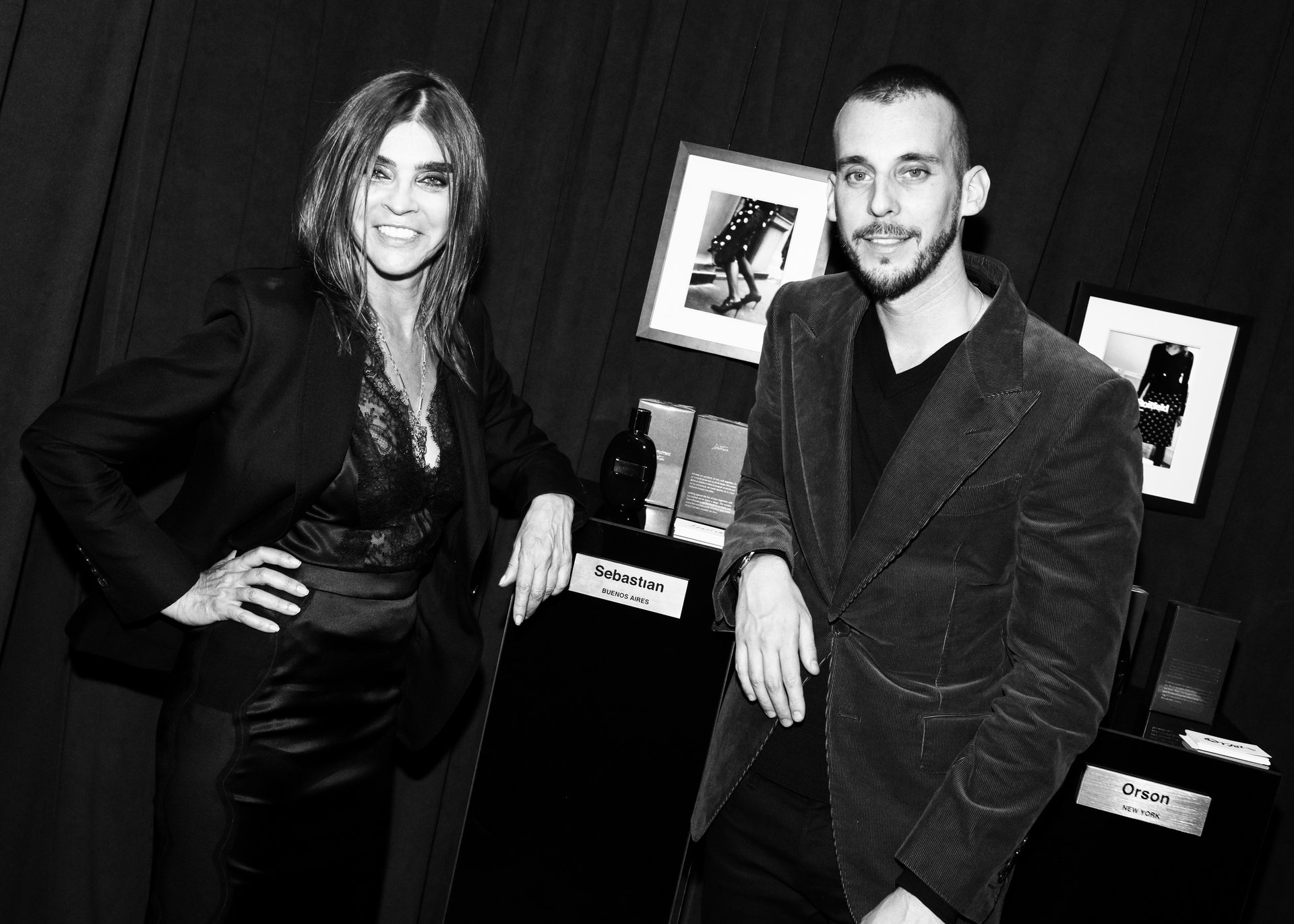Celebrating American Pacific Islander Month with Facebook
May 31, 2019
Crystal Ung
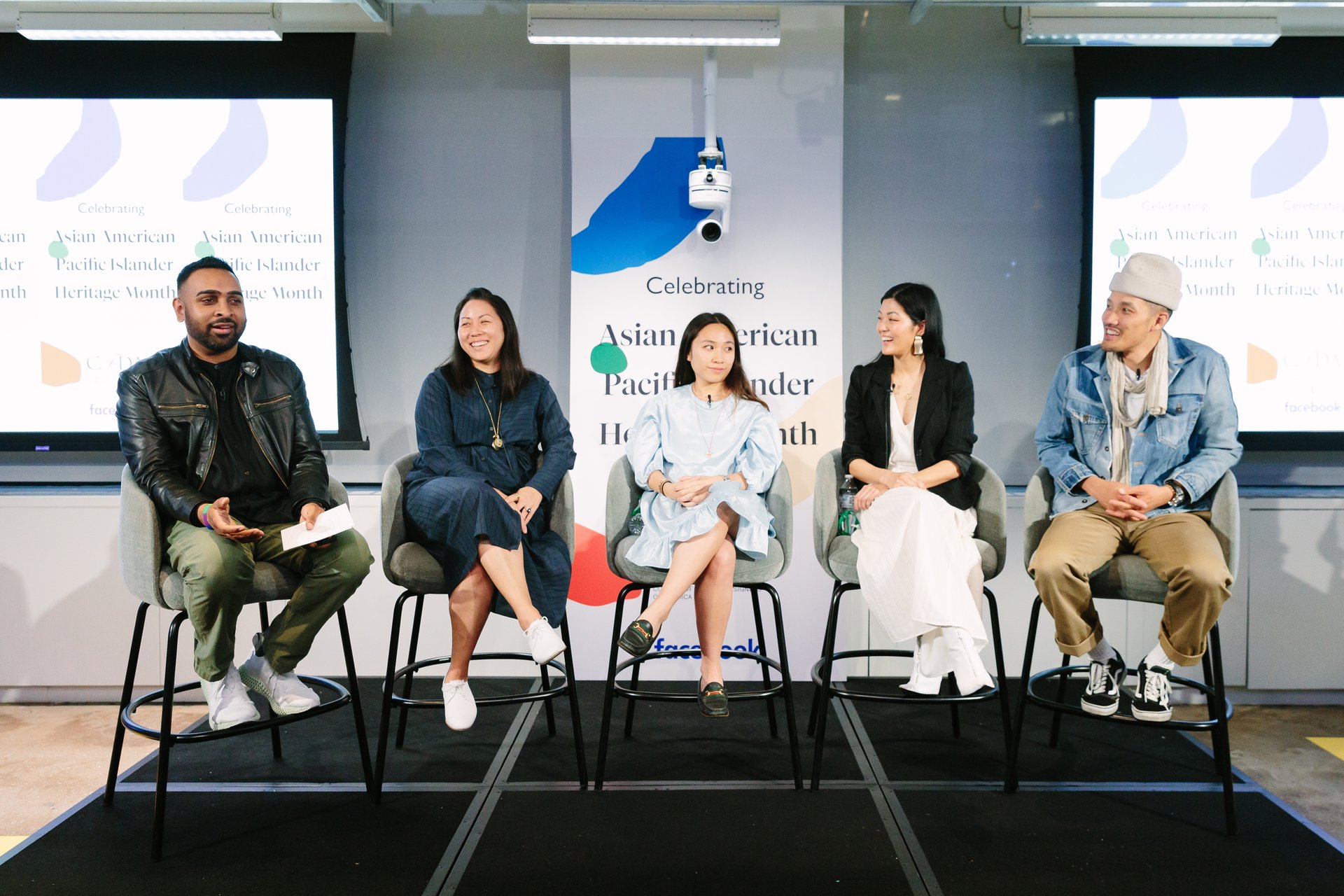


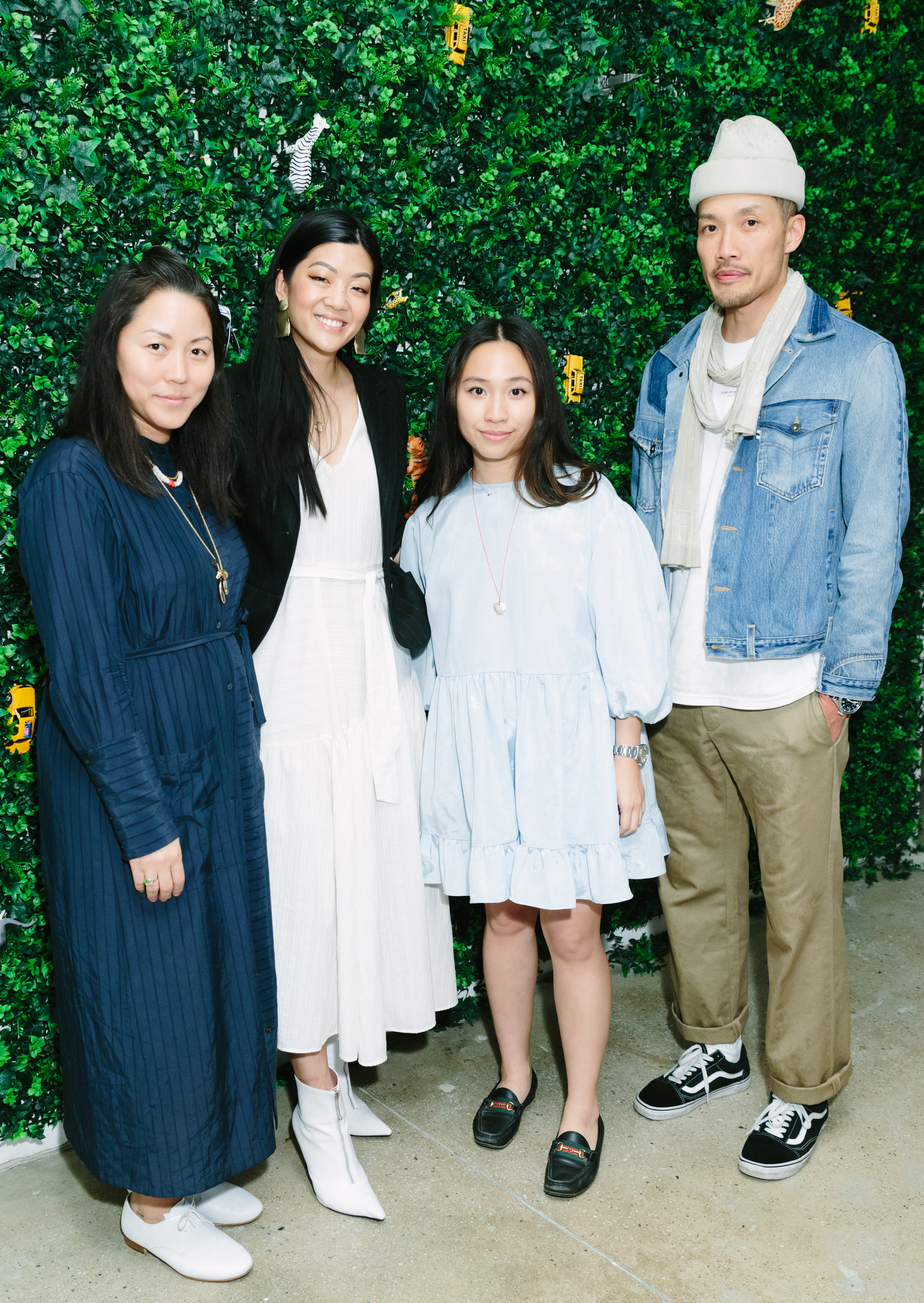
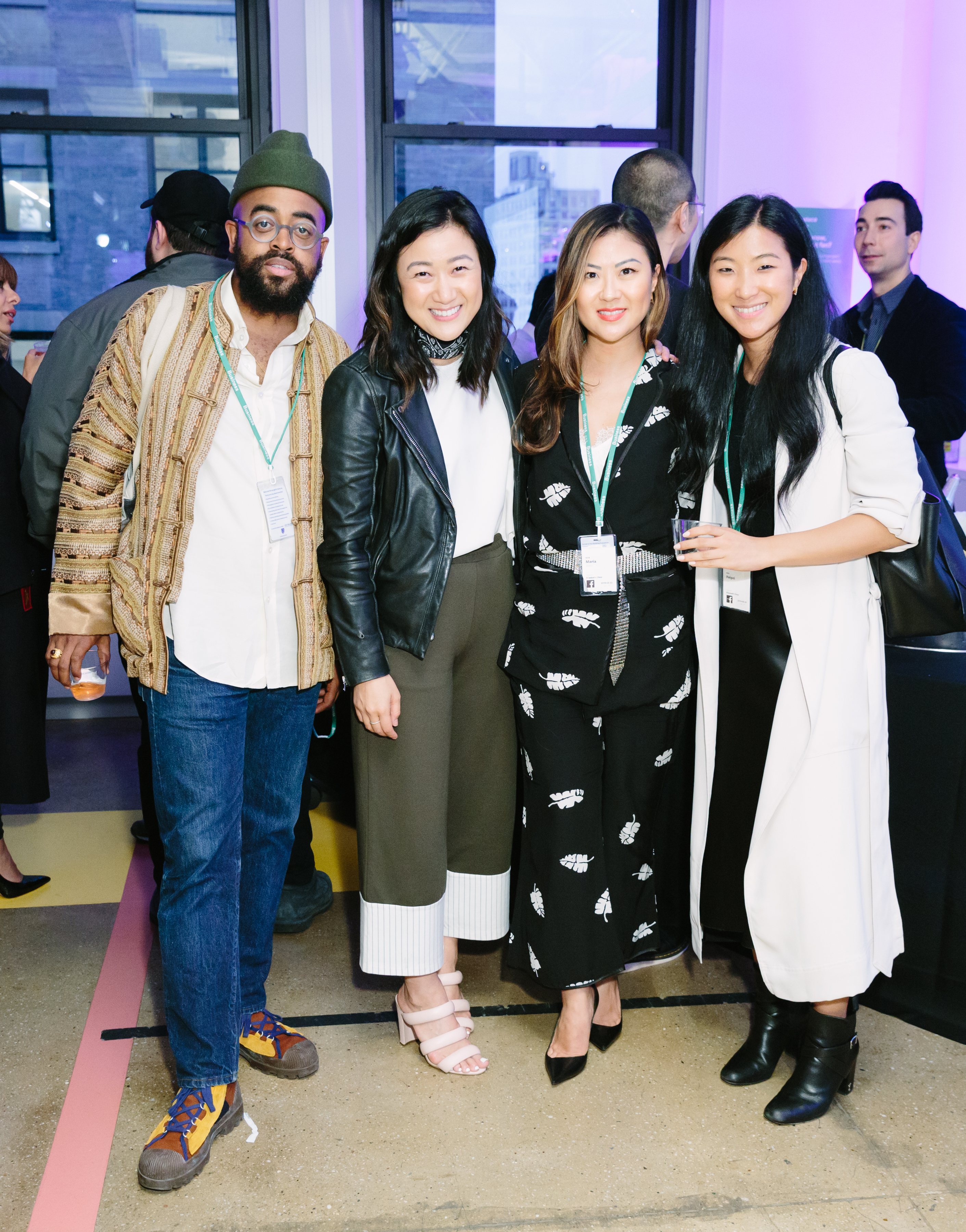
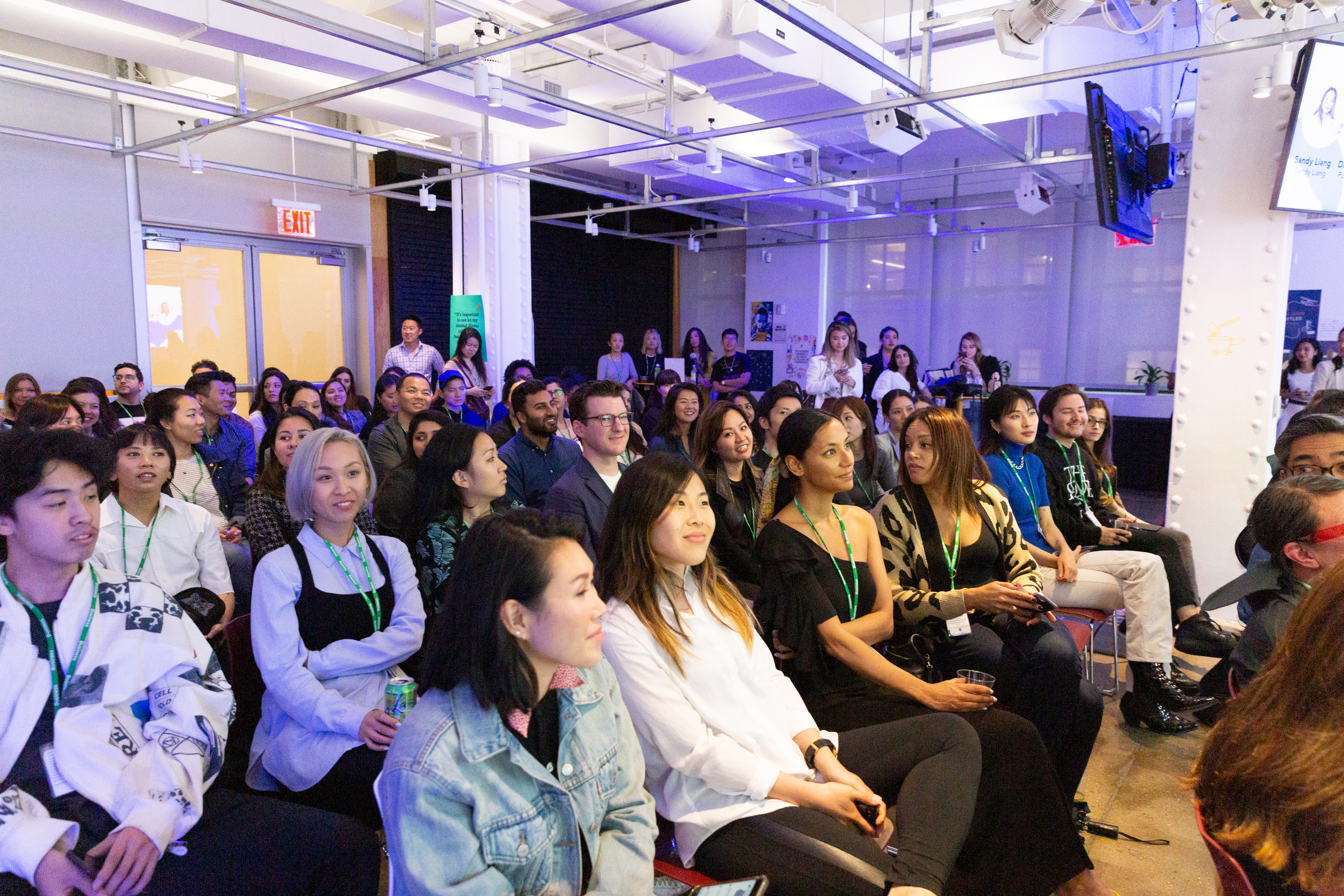
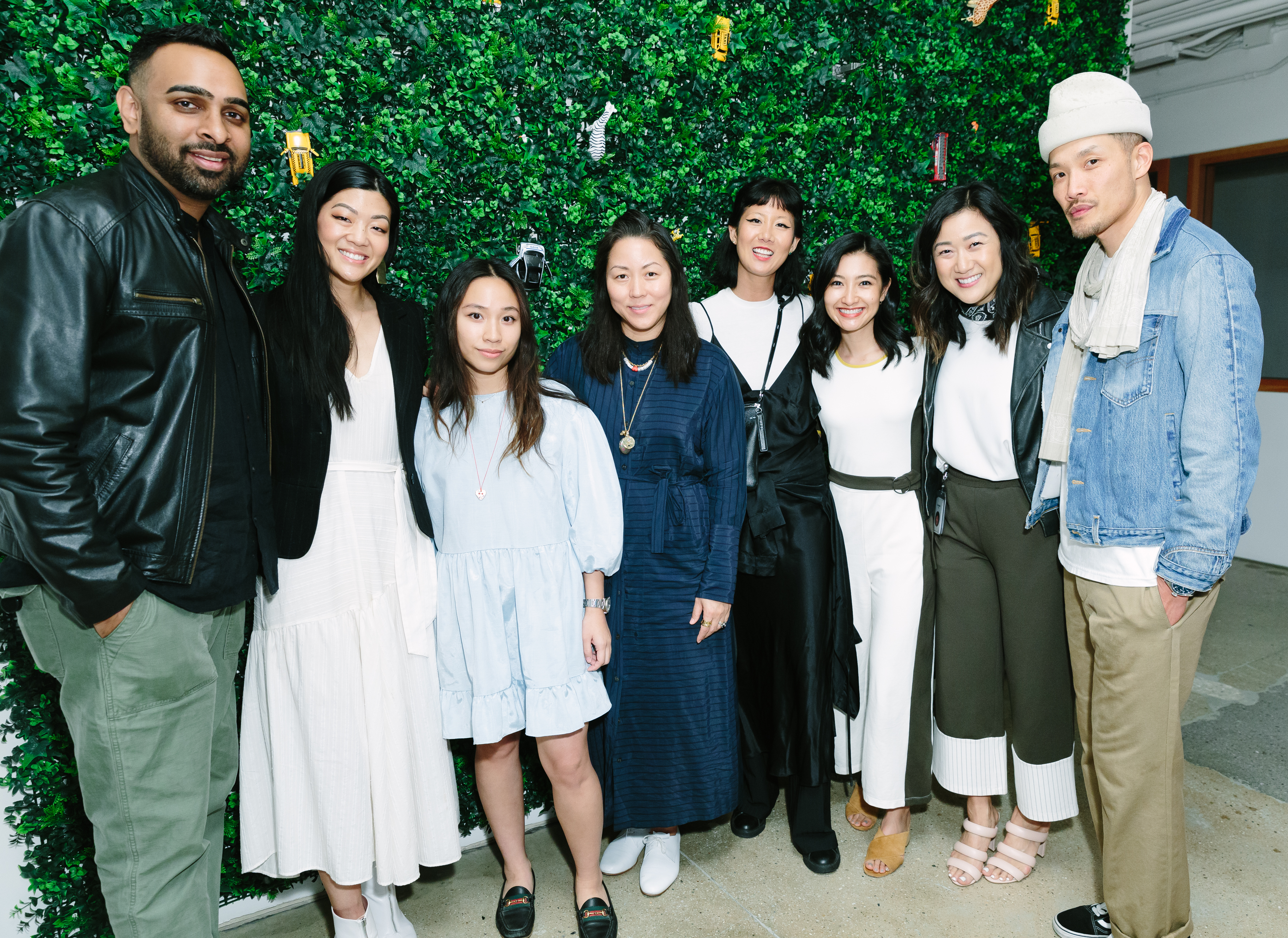
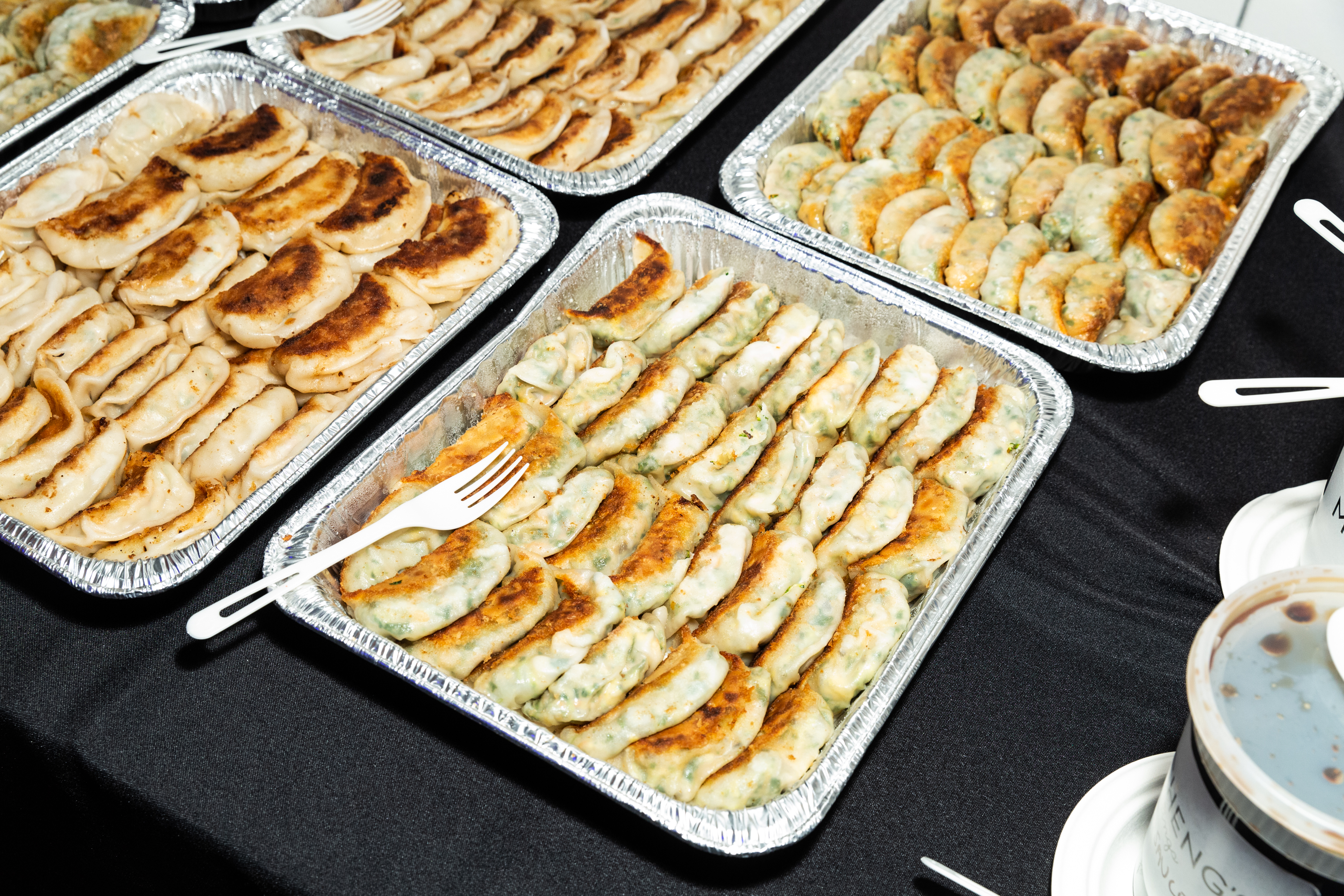
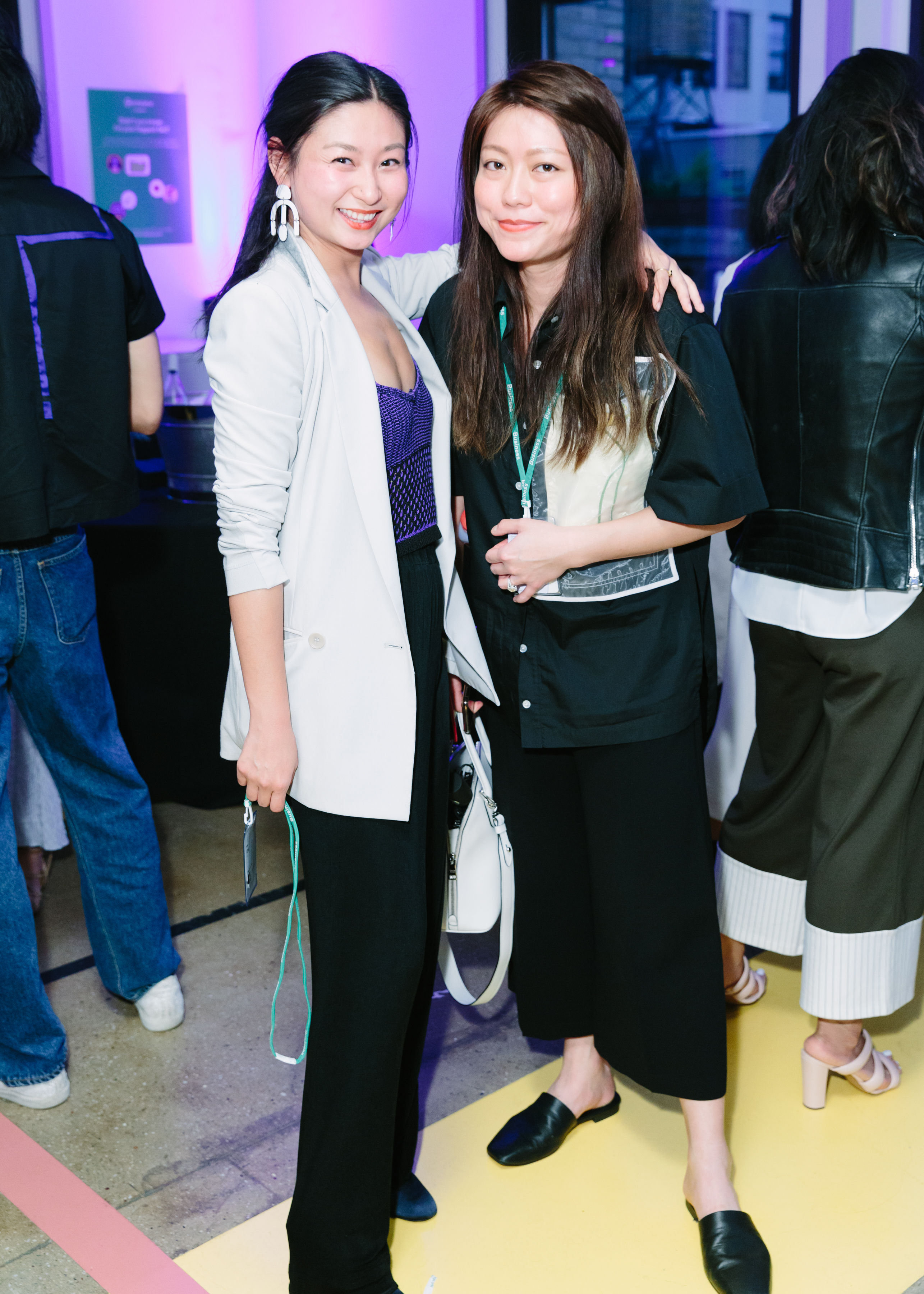
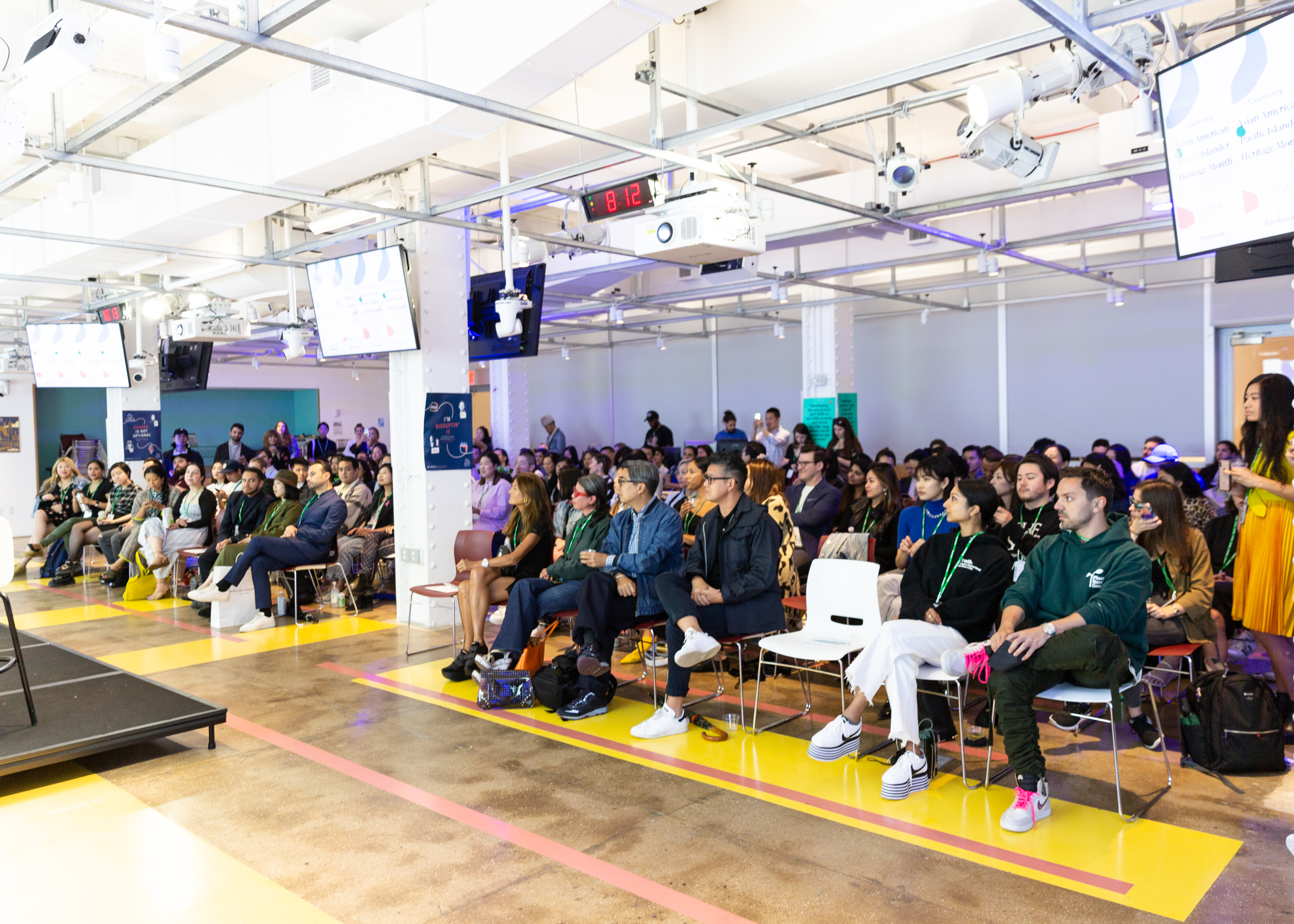
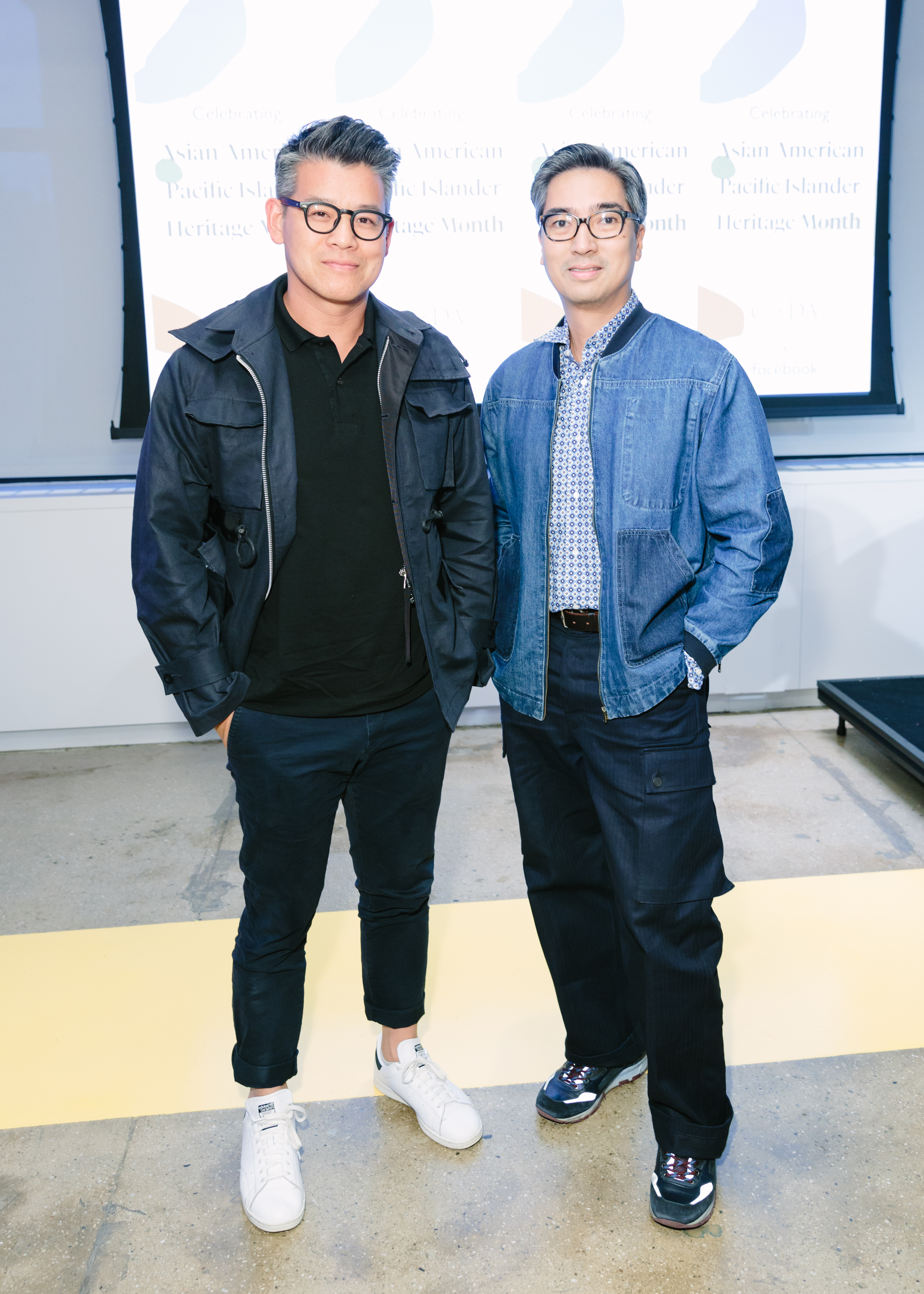
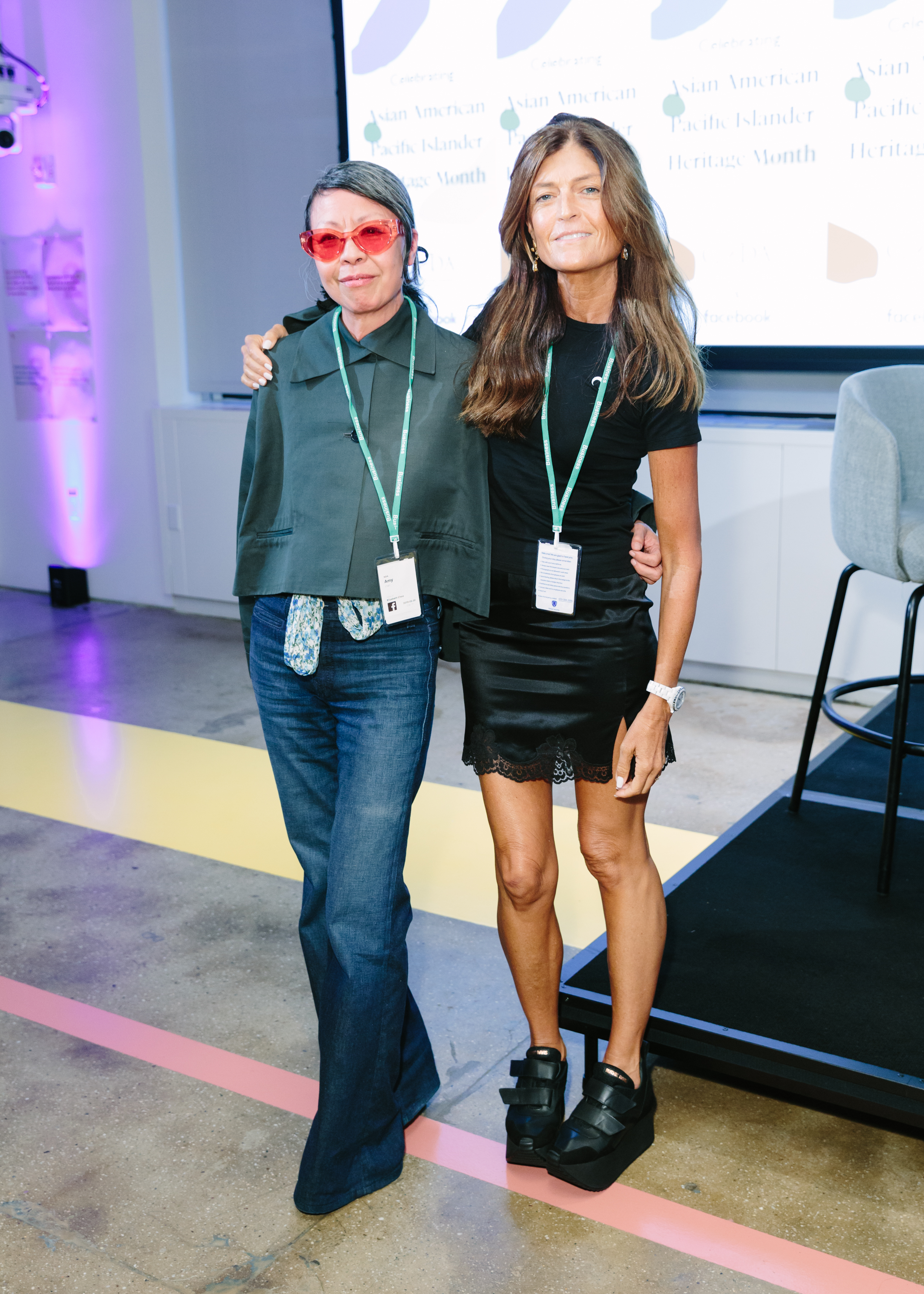
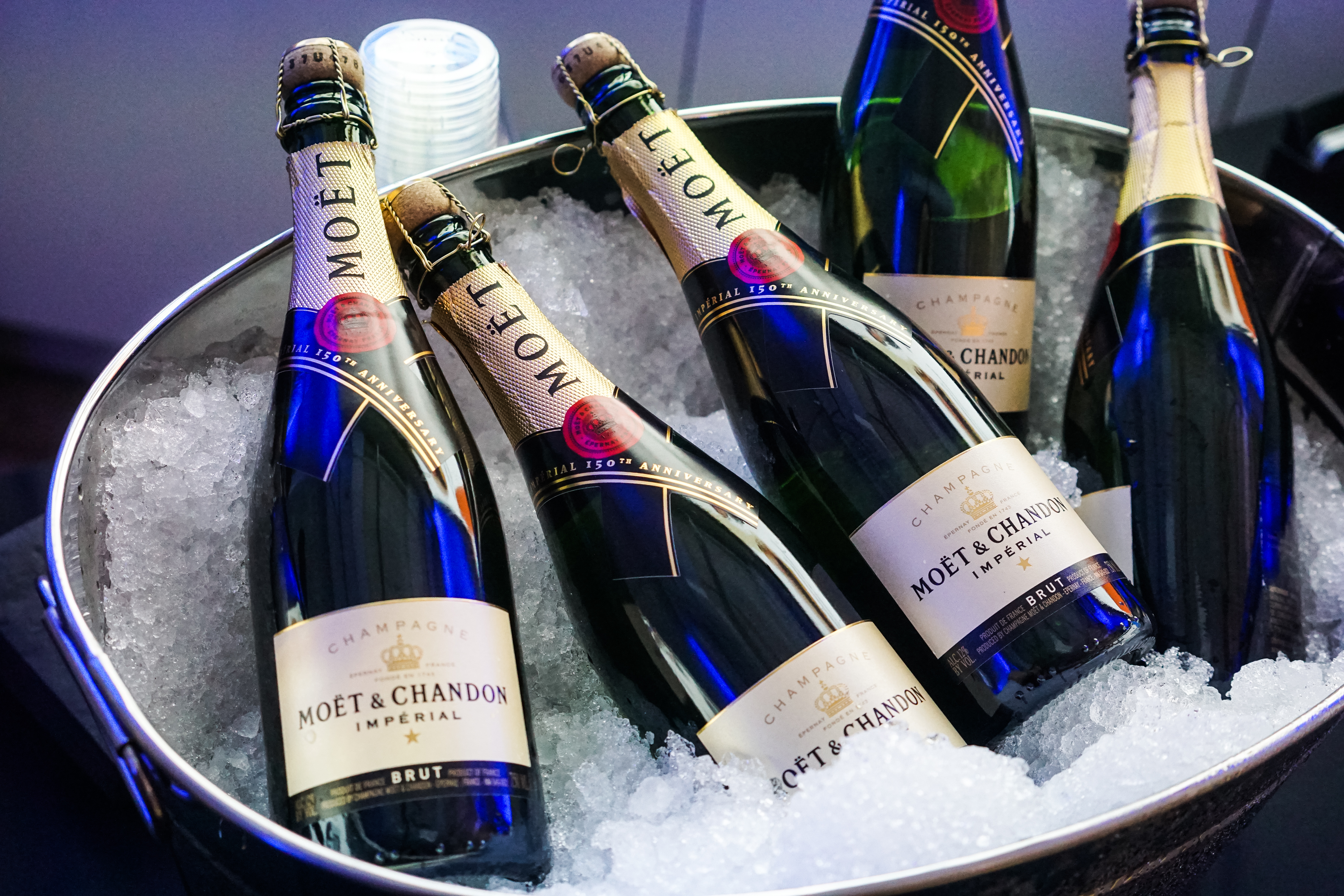
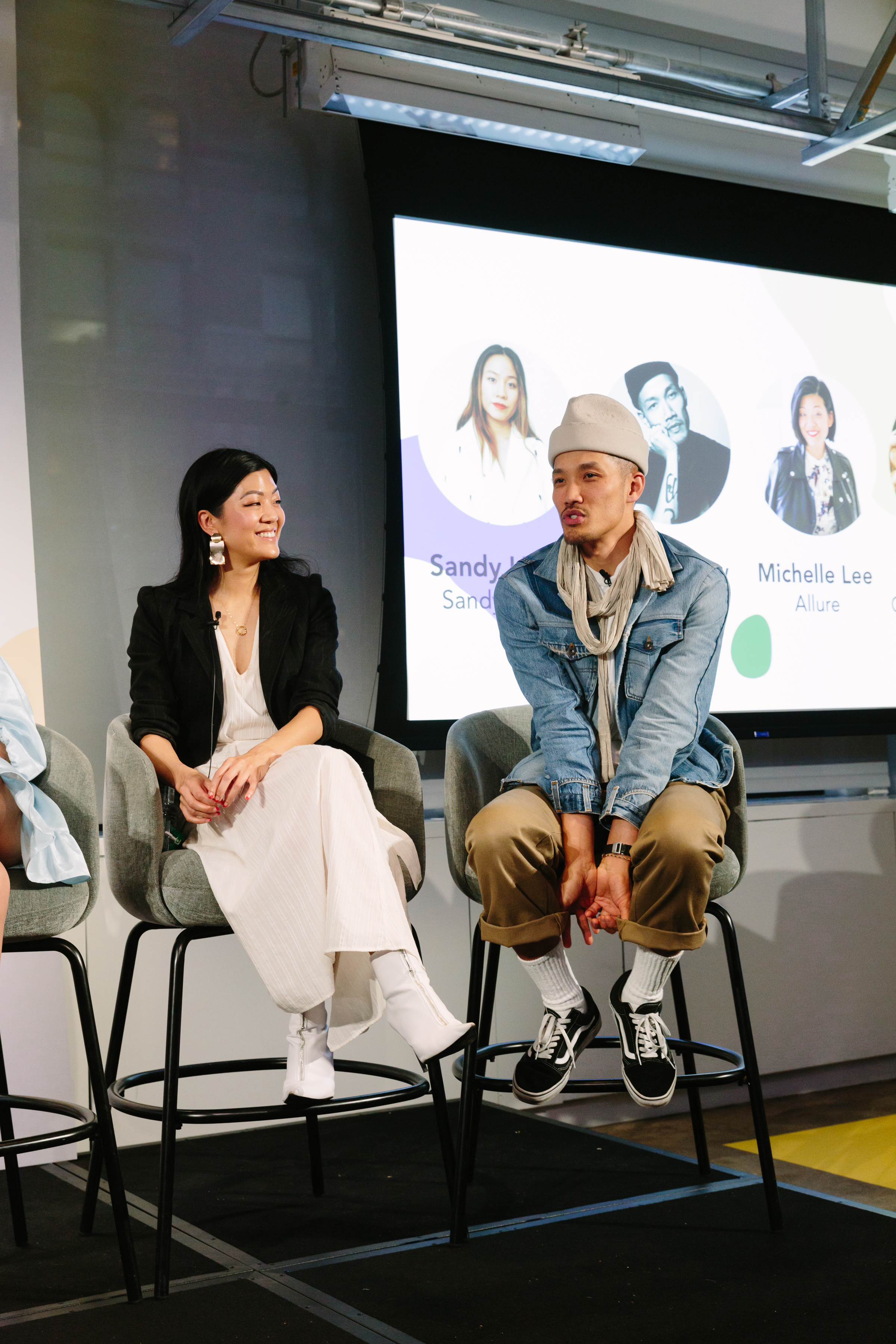
Kunal Merchant, Carol Lim, Sandy Liang, Michelle Lee and Dao-Yi Chow.
Carol Lim, Michelle Lee, Sandy Liang and Dao-Yi Chow.
Mobolaji Dawodu, Elizabeth Choo, Maria Givens, and PeiPei Lin.
Kunal Merchant, Michelle Lee, Sandy Liang, Carol Lim, Anna Chae, Crystal Ung, Elizabeth Choo and Dao-Yi Chow.
Mimi Cheng's Dumplings
Cathaleen Chen and Claudia Li.
Peter Som and Rafe Totengco
Amy Chan and Ruthie Davis
Moët & Chandon
Michelle Lee and Dao-Yi Chow.
In celebration of Asian American Pacific Islander Heritage Month, the CFDA collaborated with Facebook to hold its first-ever AAPI event. The event provided a platform for underrepresented voices in the industry and brought together the larger community across fashion and tech. The panel discussion featured Carol Lim, Co-Founder of Opening Ceremony, Sandy Liang of Sandy Liang, Michelle Lee, Editor-in-Chief of Allure, and Dao-Yi Chow, Co-Founder of Public School.
Here are the main themes and highlights:
A Shared Experience
While the Asian American experience is largely shaped by the city and neighborhood in which individuals grow up and their personal interests – in Dao-Yi Chow’s case, music –there are common cultural influences every Asian American can relate to.
Expectations: The Tiger Mom/Dad
The panelists, who hail from California and New York City, spoke to the pressures of expected excellence, and particularly the pressure to pursue professions in law, medicine, or engineering.
In Carol Lim’s case, she took the traditional path of attending UC Berkeley and working in management consulting and finance before pivoting into fashion. The rest of the panelists had older siblings who took the traditional paths, enabling them to take risks in their career: Michelle Lee’s brother, who majored in math at Duke; Sandy Liang’s brother, who became a lawyer, and Dao-Yi Chow’s sister, who became doctor.
Family: Sacrifices
As any child of immigrant parents can attest to, the incredible sacrifice and hard work witnessed while growing up shapes one’s perception of opportunity, failure, and approach to business. Each panelist’s parents were immigrants with a few who were small business owners.
Dao-Yi Chow’s family owned two florist shops, but there was never a conversation on how to start a business. “Example is what spoke to me,” Chow said. To him, their sacrifice was enough and the message was loud and clear that he was empowered to do anything.
In Sandy Liang’s case, her frugal upbringing absent of excess made the idea of pursuing fashion seem frivolous, leading her to initially study architecture at RISD. However, driven by her passion, she transferred to Parsons to study fashion with the blessing of her father.
Culture, Work, and Activism
Each panelist has a unique way in which the Asian American culture is expressed or embedded in their work. They overcame obstacles – some related to culture and some not – but what’s undeniably clear is that their perseverance and work ethic is driven by culture and family.
For Carol Lim and Dao-Yi Chow, they did not have the pedigree and background expected of fashion designers. They didn’t go to design school or work at a certain house. Feeling like fashion outsiders, they persisted. According to Chow, Public School wasn’t making “couture or high fashion – it was New York Streetwear.” Early on, the “CFDA embraced us and took us in when a lot of people didn’t believe we belonged.”
Sandy Liang’s muse is the Chinese grandmother in NYC’s Chinatown, who mixes prints and wears wide legged pants with no regard for what’s on-trend. Liang often infuses her Chinese background in her brand, whether it’s shooting with her grandmother or showing her collection at Congee Village.
Michelle Lee plays an active role in the Asian American community, having made history this year by putting three Asian models on the cover of Allure. Lee also made the A100 List, which honors the most impactful Asians and AAPIs. She has not only taken to Twitter to publicly address racist behavior, but her decisions as a leader is driven by doing what is right – and not supporting brands that are racially insensitive. Lee believes every decision Allure makes can leave a larger impact and help make strides in diversity and inclusion.
Chow of Public School emphasized the importance of having a platform for social change within Public School – WNL – and believes there is always a way to be socially conscious.
As the panel discussion concluded, the audience was left with a closing message: We need to do more as a community. A movement gains momentum with individuals.
Please enjoy moderator Kunal Merchant’s AAPI Playlist.

